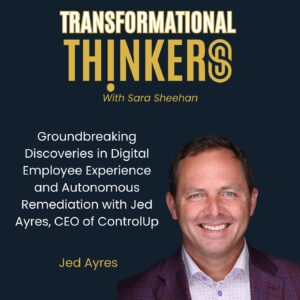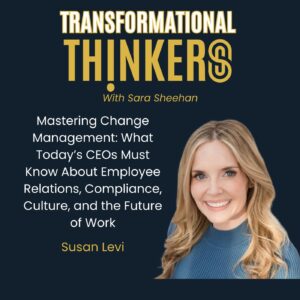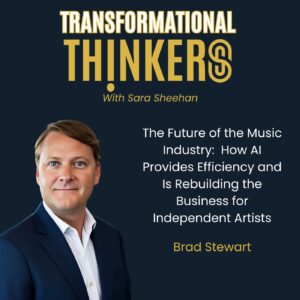Sara Sheehan’s guest in this episode is Kevin Wilkins, CEO of Trepwise, a New Orleans-based strategy firm that has worked with over 550 purpose-driven organizations. Kevin talks with Sara about what life events changed his career path and why Trepwise is such an important step for him. They explore what it takes to build a sustainable business in the present day and what leaders need to know.
Kevin describes moving his family to New Orleans 4 and ½ years after Hurricane Katrina had hit after his wife got a great job offer. Once in the city, he began to look at how nonprofits had sprung up to assist New Orleans after Katrina but how despite the money flowing in, they were all vying for same funding and not many had a sustainable plan. That ultimately led him to found Trepwise. He unpacks what Trepwise is designed to do and how it functions, especially amongst the specific needs of New Orleans.
Sara and Kevin talk about the driving motivation behind Trepwise and the human-centred approach Kevin focuses on taking. He points out that not only has he learned a great deal about nonprofit business and sustainability in that format but that the work he’s doing has taught him a lot and brought him immense personal satisfaction when goals for child welfare or improvement initiatives are realized. Kevin’s passion for his work and the city he lives in is evident throughout and his vision, through Trepwise, has created a sustainable foundation for many organizations wanting to help.
About Kevin Wilkins
Kevin N. Wilkins is the Founder and CEO of Trepwise, a growth consulting firm with a mission to unlock the potential of purpose-driven organizations by aligning people, process, and vision.
Kevin moved to New Orleans in 2010 and served as Entrepreneur-in-Residence and COO for The Idea Village from 2011 – 2013. His experience working closely with entrepreneurs in the New Orleans area led him to launch Trepwise in 2013. With more than 30 years of experience in corporate and private ventures, Kevin has built a strong team of consultants at Trepwise who collectively have worked with over 500 organizations within private and public sectors, nonprofits, and foundations.
Kevin has also served on several nonprofit boards, currently for YPO Louisiana, Tulane Hillel, Institute of Mental Hygiene, City Year New Orleans, Touro Synagogue, Collegiate Academies, Jewish Federation of Greater New Orleans, The Foundation for Science and Mathematics Education, and formerly for Louisiana Children’s Museum, Pelican Bomb, Propeller: A Force for Social Innovation.
Kevin is a graduate of Dartmouth College and holds an MBA from Harvard Business School, as well as holding executive leadership positions with Procter & Gamble, Fidelity Investments, and State Street Research & Management. In addition, Kevin is a lead mentor for the national Goldman Sachs 10,000 Small Businesses Program and a mentor to startups in the Spark10 accelerator program based in India.
—
Contact Sara Sheehan | Sara Sheehan Consulting:
Kevin Wilkins | Trepwise Strategy Consulting
- Website: Trepwise.com
- Kevin Wilkins on LinkedIn
Hosted by Simplecast, an AdsWizz company. See pcm.adswizz.com for information about our collection and use of personal data for advertising.


